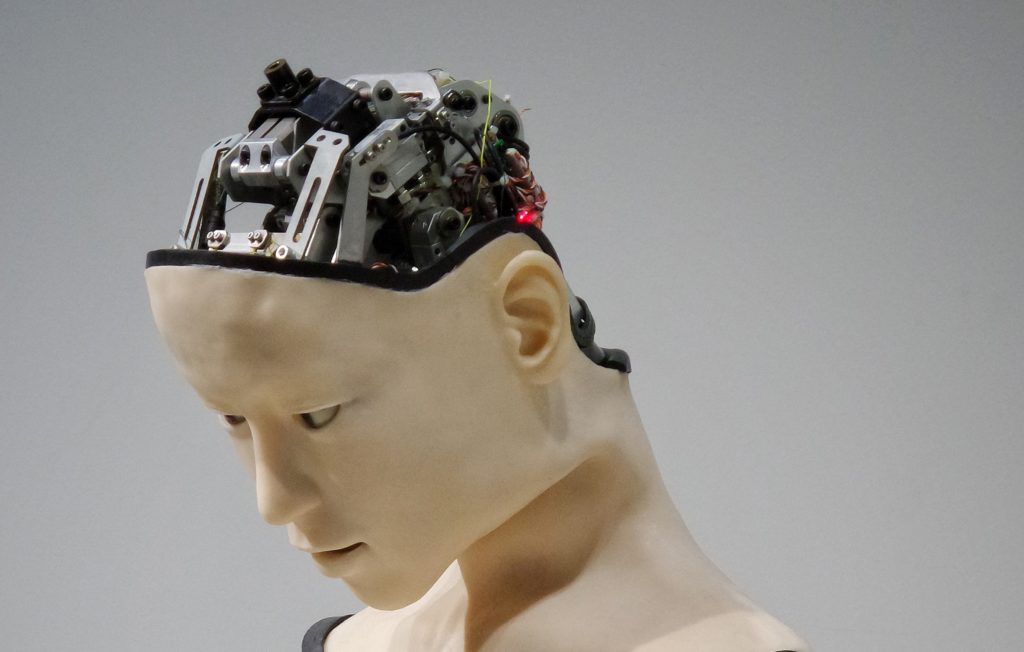
Are chatbots making human interaction transactional during a time when human civility is increasingly endangered?
I put the idea to the test this week thanks to Amazon.
The power of “thank you”
I am one of those people who grew up thinking “please” and “thank you” were the “magic words.“ Forgetting them had consequences at the dining room table, especially if I wanted dessert.
If I travel to a foreign country and don’t speak the language, I always learn to say “thank you.”
“Domo arigato goziamasu.” “Grazie.” “ Danke.”
While “please” seems a bit optional these days, (at our table, “May I have the pepper?” has replaced “Would you pass the pepper, please?), “thank you” still scores.
I like to both say it and hear it.
Should I say it to Amazon’s digital voice assistant, the charming “Alexa?”
Talking to chatbots: the new world of customer service
I’ve heard that “chatbots” are the way of the future, replacing human support with a series of artificial intelligence (AI) communications. Chatbots are those interactions you have on webchats and phone trees with a digital assistant. They simulate conversation and can provide information, which is fine with me when I need store hours.
Chatbots are OK for passing on information, but not so cool when what I need is human interaction.
In fact, chatbots are a road to hell when I’m hoping to talk with a human.
Last week, most of Western Washington had to deal with emergency-level smoke conditions from wildfires. I wanted to buy an air purifier to help my lung-compromised husband.
Amazon offered 24-hour delivery on a recommended model, and I ordered it, thinking we’d have smoke-redemption on the next day, Monday. (I know one-day delivery is a first-world expectation!)
Then I started receiving emails from Amazon. On Sunday, I read: Good news! Your package has shipped to USPS (post office). Now arriving early Monday morning. On Monday: “Arriving late. Sorry for the delay. The package will arrive before 9 pm Tuesday!” Then, late on Tuesday–let’s just say it wasn’t good.
Suffering smoke had health consequences, and I was not a happy camper. I wanted someone at Amazon to know the seriousness of their glitch and called customer support. (I had to google to get the number; Amazon doesn’t share it on the website.)
But before I could speak with a human, I had to go through Chatbot Checkpoint Charlie. Here’s the scene that unfolded as I was quizzed on the phone.
Chatbot: “Has your package been delivered, yes or no?”
Here’s what I wanted to say:
Me: “It’s neither yes nor no. My package is being held in post office purgatory, and I need it today.”
Chatbot: “Has your package been delivered, yes or no?”
Me: “Agent”
Has your package been delivered, yes or no?
Me: “AGENT!!!”
Then, I thanked him.

Having to negotiate with a non-humanoid is humiliating.
And deeply irritating. I don’t have high blood pressure, but mine was surely going up.
Miraculously, I did something that caused a human being to appear on the line, a man with a pleasant, soft, British accent. I described the situation, told him about the emergency, and explained that I needed the package today, Tuesday, if not yesterday.
He listened calmly, apologized, and offered to help. He even put me on hold and called the post office. (“Good luck,” I thought.)
He returned with the news that the package would be delivered before 9 pm. I knew that from an automated email, but somehow talking to him helped.
Before we ended, I asked him to share my complaint about the delivery system with the gods-that-be at Amazon, and he offered to have a delivery representative be in touch with me.
Customer service representatives who do an even reasonably good job deserve our thanks, and this man had been considerate, attentive, and kind.
I acknowledged him, and then something miraculous happened. He broke role and left his scripted performance.
Agent: I am sorry. I know that you needed this for an urgent medical need. Where I come from, we understand such emergencies.
My ears perked up, “Air pollution?” I asked.
“In the Caribbean, it’s floods and hurricanes.”
“Of course.”
Even though we only talked this way for a few seconds, for those moments, we became real human beings. Connecting transformed my experience.
To close out the call, the representative had to return to his script. Blah. Blah. Blah. I understood.
I felt satisfied until:
- The delivery representative sent me a form letter.
- The package did not arrive as promised.
- An email told me I could contact the post office for more information.
Defeated, I called Amazon again, but the telephone wait was long, and the chatbot directed me to the website and disconnected me.
Returning to chat on the web:
Website chatbot: I am sorry that your package is late. Do you want to contact the carrier for more information?
Me (defeated): NO! NO! NO!
(End of scene.)
Apart from my wonderful thirty seconds with a human being from the Caribbean, the Amazon experience was soul-depleting.
As I said, negotiating with a non-humanoid is humiliating, especially when the non-human has a limited range of phrases and the power to hang up on you.
Even more than I dislike such service, I hate what it does to me.
It makes me want to bash something.
I may give up on the air purifier. Air-purifying rains are starting soon.

AI is here to stay
Business futurist Bernard Marr writes:
“Alexa and Siri, Amazon and Apple’s digital voice assistants, are very real applications of artificial intelligence that is increasingly integral to our daily life. They both rely on natural language generation and processing and machine learning, forms of artificial intelligence, in order to effectively operate and perform better over time.”
That’s helpful when I want to find new songs on a music-streaming service.
But when it comes to customer service I AM NOT THE PRODUCT OF AN ALGORITHM, and I don’t want to be treated like one.
(Algorithm = a process or set of rules to be followed in calculations or other problem-solving operations, especially by a computer.)
Chatbot service may be the way of the future. Prepare yourself for life with five options and a forced choice. For example:
PICK ONE
- PRESS one if you want to be treated like a machine.
- PRESS two if you want to be treated as a human.
- PRESS three If you want another option, even if we have none to offer.
- PRESS four if you’re thinking of throwing a dish against the wall.
- PRESS five if you’d like to listen to these options again.
Chatbots make human interaction transactional during a time when human civility is increasingly endangered, and we need the transformative possibility that can come from real human-to-human connections.
Bless the workers
Despite my acute frustration with chatbots, I have great empathy for service workers.
Please join me in blessing and thanking customer service workers. They’re an endangered species who are trying hard even when they have to work within a company-induced trance.
Should I thank Alexa?
I know it’s goofy, but for the time being, I’m thanking Amazon’s AI digital representative.
I need to keep my thank you muscles strong, lest I stop using them with real humans.
To ease my frustration and help a friend who received a bad diagnosis, I found this video of a baby and dog eating popcorn. No chatbot will ever replace this laughter, I promise you.










2 Responses
🤣🤣🤣🤣🤣🤣🤣🤣🤣🤣
Oh, how I feel your pain! Whenever I get to Interact with a human, I make sure to tell them how much I appreciate having a real person with whom to talk..I ask them to pass on my feedback to management, please. In really bad obnoxious encounters I find myself SHOUTING to find me an agent, or customer service, or help…and, yes, these encounters are exhausting. Congrats on even finding a phone number to call…anyway, I enjoyed your rant…made me laugh! Not so bad for a blog…❤️😘🤣🤣🤣🤣🤣🤣🤣🤣
“Need to keep my thank you muscles strong” – Love It!